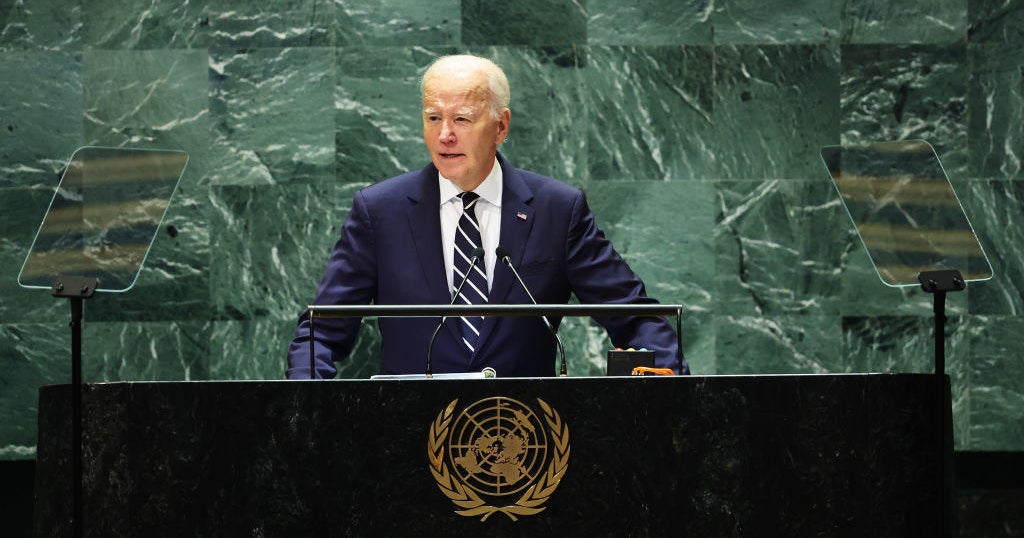
Washington — President Biden will go to Africa next month for the first time as president, following through on a promise he made to visit the continent while in office.
During the United Nations General Assembly in New York, the White House announced a trip to Angola and Germany next month. The president will spend time in the capital city of Luanda from Oct. 13 to Oct. 15 to discuss economic partnerships and a vision for Africa’s first transcontinental open-access rail network connecting the Atlantic and Indian Oceans, among other issues.
“The President’s visit to Luanda celebrates the evolution of the U.S.-Angola relationship, underscores the United States’ continued commitment to African partners, and demonstrates how collaborating to solve shared challenges delivers for the people of the United States and across the African continent,” White House press secretary Karine Jean-Pierre said in a statement.
Mr. Biden had long pledged to visit Africa as president, but without specific plans to follow through. In May, the president said he would visit the continent in February, after he was reelected.
“I plan on going in February after I am reelected,” Mr. Biden said as he greeted Kenyan President William Ruto at the White House in May.
But Mr. Biden’s decision to exit the race for president altered that calculus, casting a trip to Africa in doubt.
Earlier Tuesday, the president announced the U.S. is providing at least $500 million, as well as 1 million mpox vaccine doxes, to aid African countries as they try to prevent and respond to the mpox outbreak. In August, the World Health Organization determined that an upsurge of mpox in the Democratic Republic of the Congo and a growing number of nations in Africa constitutes a public health emergency of international concern under the International Health Regulations, the highest level of alarm.
The Angola trip announcement comes the same day Mr. Biden delivered his final address to the United Nations General Assembly as president.
“My fellow leaders, I truly believe we’re at another inflection point in world history where the choices we make today will determine our future for decades to come,” Mr. Biden said Tuesday. “Will we stand behind the principles that unite us? Will we stand firm against aggression? Will we end the conflicts that are raging today? Will we take on global challenges like climate change, hunger and disease?”
